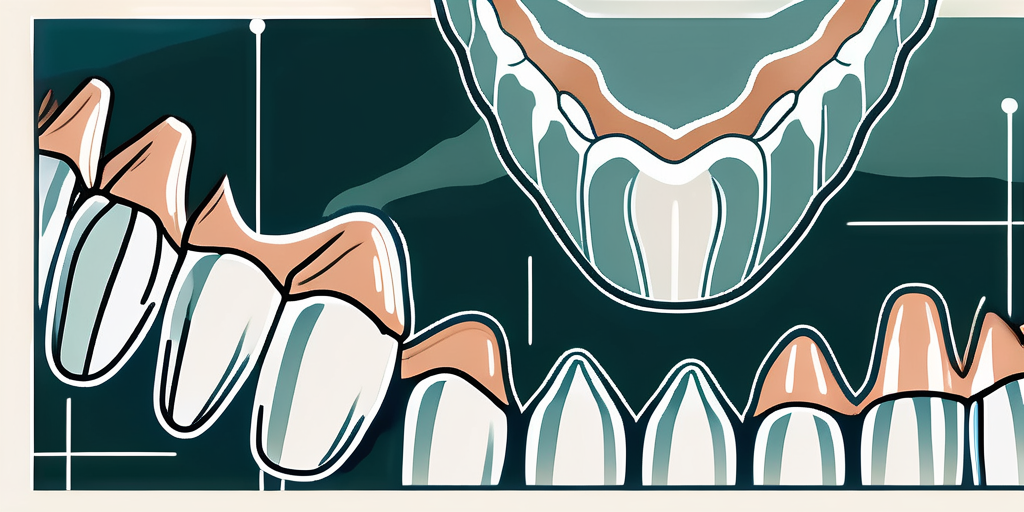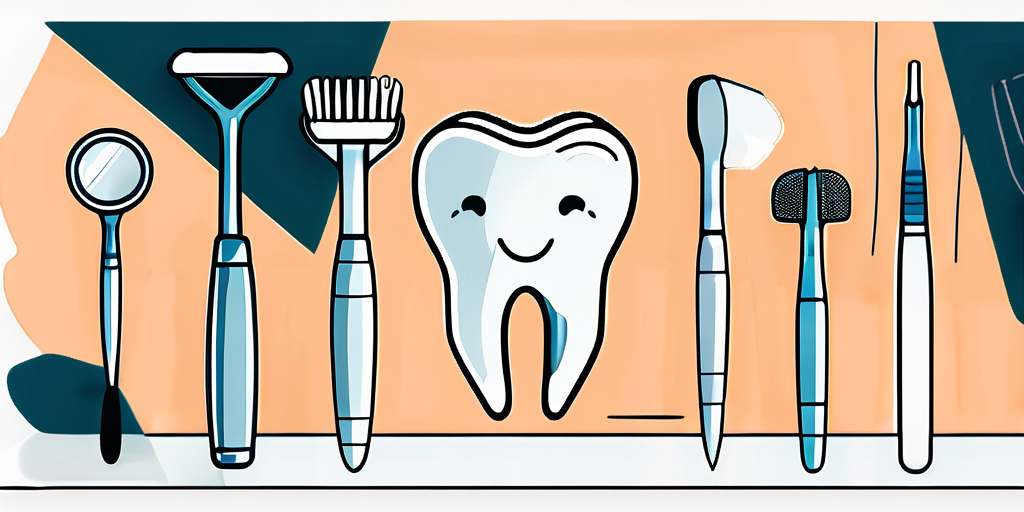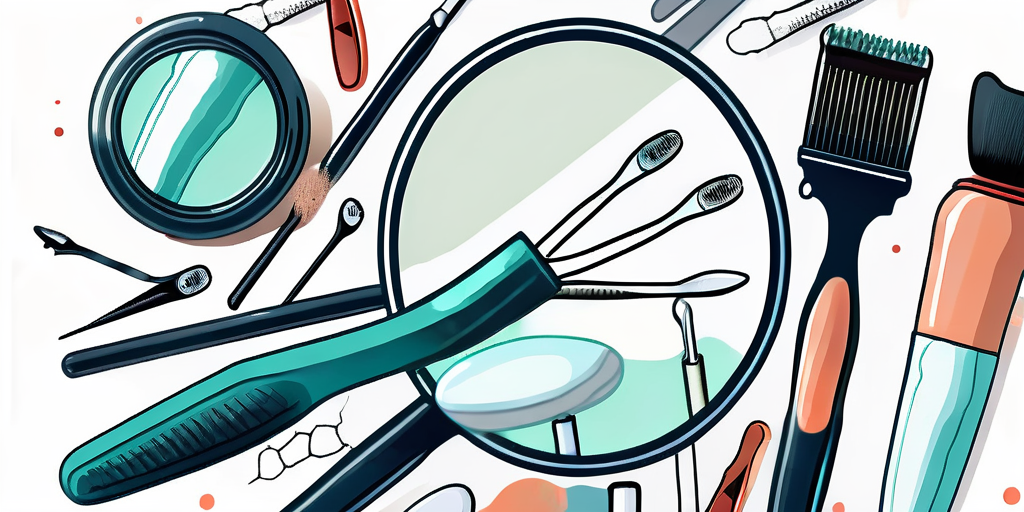
A chipped tooth can happen to anyone, and it can be a source of discomfort and concern. Understanding the causes, effects, and treatment options for a chipped tooth is essential for maintaining good oral health. In this ultimate guide, we will explore everything you need to know about chipped tooth repair.
Various factors can lead to a chipped tooth. It's important to be aware of these causes to prevent further damage.
When it comes to the fragility of teeth, understanding the underlying reasons for a chipped tooth is crucial. Not only can it impact your smile and confidence, but it can also lead to potential oral health issues if left untreated. By delving deeper into the common causes of toothchipping, you can equip yourself with the knowledge needed to protect your dental well-being.
Accidents or injuries are often the primary culprits behind a chipped tooth. Sports activities, falls, or even biting into hard objects can result in tooth damage. Additionally, tooth decay weakens the structure of the tooth, making it more prone to chipping.
Moreover, lifestyle habits such as teeth grinding or clenching can exert excessive pressure on the teeth, increasing the likelihood of chipping. It's essential to address these habits to safeguard your dental health and prevent unnecessary damage to your teeth.
Your diet plays a significant role in maintaining tooth health. Consuming excessive sugary foods and beverages can lead to tooth decay and weaken enamel, increasing the risk of chipping. Additionally, frequent consumption of acidic foods and drinks can erode the tooth enamel, making it more susceptible to damage.
Furthermore, inadequate intake of essential nutrients, such as calcium and vitamin D, can compromise the strength of your teeth, making them more vulnerable to chipping. Ensuring a balanced diet rich in vitamins and minerals is key to promoting optimal oral health and reducing the likelihood of dental issues.
A chipped tooth can have both immediate and long-term effects on your oral health. Understanding these implications is crucial in determining the appropriate course of action.

When a tooth becomes chipped, it not only affects the aesthetics of your smile but can also have significant consequences for your overall oral health. The jagged edges of a chipped tooth can create a breeding ground for bacteria, increasing the risk of decay and infection. This can lead to more serious issues such as abscesses or gum disease if left untreated.
A chipped tooth can cause pain and sensitivity, particularly when consuming hot, cold, or sweet foods. It can also lead to a jagged or rough edge, increasing the risk of cutting your tongue or cheek. Additionally, a chip can compromise the integrity of the tooth, making it more susceptible to further damage or infection.
Moreover, a chipped tooth can impact your bite alignment and jaw function. The uneven surface of the tooth can alter how your teeth come together when you bite, potentially causing discomfort or even temporomandibular joint (TMJ) issues. Addressing a chipped tooth promptly can help maintain the harmony of your bite and prevent any associated complications.
Seeking prompt treatment for a chipped tooth is essential to prevent complications. Ignoring the issue can result in further damage, tooth decay, and even tooth loss. It's crucial to consult a dentist as soon as possible to explore the available treatment options.
A chipped tooth can manifest in various ways. Understanding the type of damage is essential in determining the most appropriate treatment.

When it comes to cracked teeth, there are different levels of severity. A small, shallow crack on the tooth surface may not always cause immediate pain, but it can worsen over time if left untreated. In contrast, a deep crack that extends into the inner layers of the tooth can lead to significant discomfort and potential infection if not addressed promptly.
Cracked teeth occur when there is a small, shallow crack on the tooth surface. While these cracks may not always cause immediate pain, they can worsen over time and develop into more severe issues if left untreated.
It's important to note that cracked teeth can be caused by various factors, including trauma from accidents, teeth grinding, or even biting down on hard objects. Regular dental check-ups can help identify these cracks early on and prevent them from escalating into more serious dental problems.
A fractured cusp refers to the chipping of a portion of the tooth's chewing surface. This type of chip is often painless but can cause discomfort when chewing or biting down on food.
Patients with a fractured cusp may notice sensitivity to hot or cold temperatures, especially when consuming food or beverages. While this type of chipped tooth damage may not always be a cause for immediate concern, it is advisable to consult with a dentist to prevent further complications.
A serious break refers to a substantial chip or fracture that exposes the inner layers of the tooth, including the nerves and blood vessels. These breaks are typically accompanied by severe pain and require immediate dental attention.
When a tooth experiences a serious break, it is crucial to seek professional help as soon as possible. Delaying treatment can lead to infection, abscess formation, and even tooth loss. Dentists have various treatment options available for serious breaks, such as dental crowns, root canals, or in severe cases, tooth extraction.
When it comes to repairing a chipped tooth, several professional treatment options are available. These options aim to restore the tooth's shape, function, and aesthetics.

It is essential to address a chipped tooth promptly, as leaving it untreated can lead to further complications such as infection or more extensive damage. Seeking professional dental care is crucial to ensure the best possible outcome for your oral health.
Dental bonding is a common treatment for minor chips. It involves applying a tooth-coloured resin to the damaged area, which is then shaped and polished to match the surrounding teeth. This procedure is relatively quick and affordable.
During the dental bonding process, the dentist will carefully etch the tooth's surface to create a secure bond with the resin material. The resin is then applied in layers and hardened with a special light to ensure a durable and natural-looking result.
If the chip is significant or if there is extensive damage to the tooth, a dental crown may be recommended. A dental crown is a custom-made cap that covers the entire tooth, providing strength, protection, and an improved appearance.
Before placing a dental crown, the dentist will prepare the tooth by removing any damaged or decayed areas. Impressions of the tooth will be taken to ensure a precise fit for the custom-made crown, which can be made from materials such as porcelain, metal, or a combination of both for optimal durability and aesthetics.
If a chipped tooth extends into the tooth's pulp or nerve, a root canal may be necessary. This procedure involves removing the damaged pulp, cleaning the root canals, and sealing them. A dental crown is often placed on top to provide additional support.
Root canal therapy is crucial for saving a tooth that would otherwise require extraction due to extensive damage or infection. The procedure is performed under local anaesthesia to ensure your comfort and modern techniques have made it more efficient and comfortable than ever before.
While professional treatment is essential for long-term repair, there are some home remedies you can try to alleviate discomfort temporarily.
When dealing with a chipped tooth, it's crucial to be cautious with home remedies and seek professional advice as soon as possible. Ignoring a chipped tooth can lead to more severe issues, such as infections or further damage to the tooth structure.
Over-the-counter dental products, such as dental wax or temporary dental filling materials, can provide temporary relief by covering sharp edges and reducing sensitivity. These products should only be used as a temporary measure until professional treatment can be sought.
It's important to note that over-the-counter solutions are not a permanent fix for a chipped tooth. They can offer temporary relief, but a visit to the dentist is crucial to assess the extent of the damage and provide appropriate treatment.
Some natural remedies, like rinsing with warm saltwater or applying clove oil to the affected area, can help reduce pain and inflammation. However, it's essential to remember that these remedies do not provide a permanent solution and should not replace professional dental care.
While natural remedies can offer temporary relief, they are not a substitute for professional dental treatment. Seeking advice from a dentist is vital to address the underlying issue causing the chipped tooth and prevent any complications.
A chipped tooth is not something to be taken lightly. Prompt treatment and proper oral care are necessary to prevent further damage and maintain optimal oral health. By understanding the causes, effects, and treatment options for a chipped tooth, you can make informed decisions and ensure a healthy smile for years to come.
If you're dealing with a chipped tooth or simply want to ensure your smile stays healthy and beautiful, Yes Dental is here to help. Led by the skilled Dr. Puja Gumber, our family and cosmetic dental practice in Rouse Hill offers personalized, top-tier dental services to address your needs. Don't wait for minor damage to become a major concern. Book your appointment with us today and take the first step towards a healthier, more confident smile.








